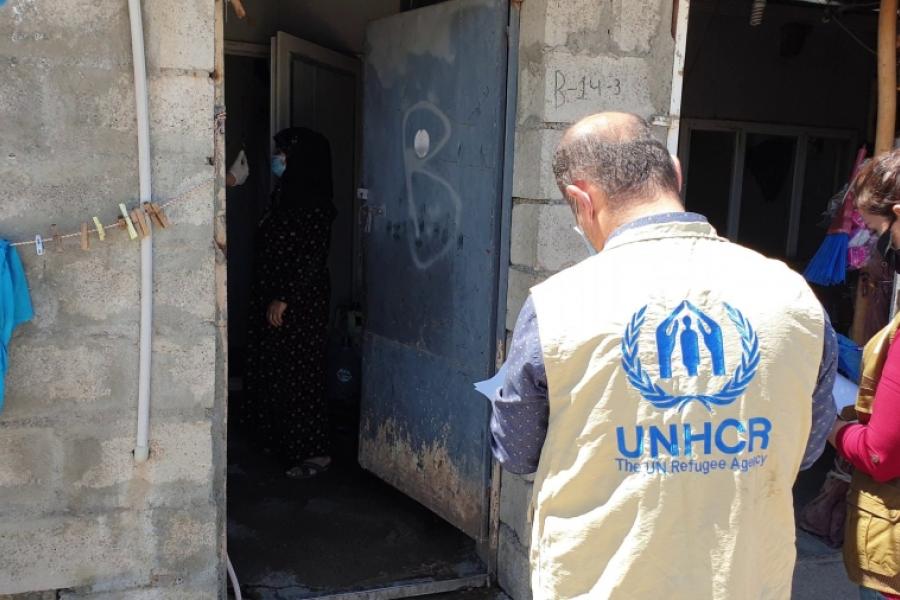UNHCR hygiene cash assistance to help refugees and internally displaced people in Iraq to combat COVID-19
١٧ أبريل ٢٠٢٠
The cash distribution started on 15 April in Basirma refugee camp and will continue to cover all refugees and IDPs living in camps as well as vulnerable refugees, IDPs, and returnee families living in urban areas.
Baghdad, Iraq | As the global pandemic continues, refugee, internally displaced (IDP) and returnee communities are at a higher risk due to their difficult living conditions.

To mitigate these risks, UNHCR, the UN Refugee Agency, decided to help over 110,000 vulnerable families (over 550,000 people) from the refugee, internally displaced, and returnee communities in Iraq by providing them with cash so that they can purchase basic hygiene items to prevent the spread of COVID-19.
“During these difficult times, we must support those who were forced to flee their homes. Like all of us, they are worried for their families and for themselves, but they don’t have the necessary means to protect themselves. Cash will help them buy basic hygiene items, which is an essential preventive measure.” said Philippa Candler, Acting Representative of UNHCR in Iraq.
The cash distribution started on 15 April in Basirma refugee camp and will continue to cover all refugees and IDPs living in camps as well as vulnerable refugees, IDPs, and returnee families living in urban areas.
In cooperation with partners, distribution is carried out through door-to-door visits, thus ensuring social-distancing and avoiding any crowding that would put the camp residents at risk. UNHCR field staff are part of the distribution team, providing counseling to refugees, IDPs, and returnees.
More than ever, additional resources are vital to prevent the spread of the virus in Iraq and to ensure that existing humanitarian programmes, on which the lives and welfare of millions of people depend, continue.
UNHCR in Iraq is urgently appealing for $26 million to scale-up its activities in response to the COVID-19 outbreak. This scale-up aims to ensure that vulnerable refugee, IDP and returnee families have access to basic hygiene items in addition to conducting essential activities including health promotion and awareness-raising, provision of medical equipment, training of health workers, strengthening health care services and disinfection activities in camps and support early detection of positive cases.



